|
Books Should Be Free Loyal Books Free Public Domain Audiobooks & eBook Downloads |
|
|
Books Should Be Free Loyal Books Free Public Domain Audiobooks & eBook Downloads |
|
Fiction |
|---|
|
Book type:
Sort by:
View by:
|
By: Arnold Bennett (1867-1931) | |
|---|---|
 Roll-Call
Roll-Call
"The Roll-Call" is the sequel to the Clayhanger trilogy. This book concerns the young life of Clayhanger's stepson, George. George Edwin Cannon (he quickly dropped the surname Clayhanger), is an architect, in many ways representing the ambitions held by his stepfather, Edwin. However, he possesses an arrogance endowed by family wealth and Bennett examines with some aplomb the difficulty of bringing up children without spoiling them. George eventually joins the army and this is a fitting finale to this fine series. | |
By: Arnold Kennedy (1853-1938) | |
|---|---|
 Merry Clappum Junction
Merry Clappum Junction
This is a jolly little book about a little boy, a dog, a train and a house. But not an ordinary train, oh no, and not an ordinary house either! And there are songs, too. The Preface is short, dull and only for the grown-ups. | |
By: Arthur Applin (1883-1949) | |
|---|---|
 Blackthorn Farm
Blackthorn Farm
But he was afraid. He had failed twice already. He could not afford to fail a third time. If he failed ruin faced him, and disgrace. His father had warned him that the money he had saved for his education had come to an end. Ruin for his father and his little sister! He had no idea how deeply Rupert was in debt. Rupert himself had only just realised it. And in desperation he had gambled to save himself. (Excerpt from 1st chapter by Arthur Applin) | |
By: Arthur B. Reeve | |
|---|---|
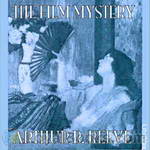 The Film Mystery
The Film Mystery
The Film Mystery is one of eighteen detective novels by Arthur B. Reeve starring his best known character Professor Craig Kennedy and his trusty sidekick Walter Jameson, a newspaper reporter. The pair bears an unmistakable resemblance to the more famous British master sleuth and his doctor friend. The setting of this mystery is the early days of movie making, and the murder victim is Stella Lamar, “the beautiful idol of the screen, beloved of millions”, who collapses and dies during the filming of a scene for her latest movie. | |
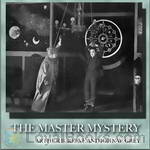 The Master Mystery
The Master Mystery
While Harry Houdini didn’t rise to fame as a screen actor, silent film makers of the day sought to capitalize on his fame. The Master Mystery was Houdini’s first such attempt, and it was embraced by the viewing public, leading to other screen roles following. The hero (or superhero) is Quentin Locke, scientist, agent of the U.S. Justice Department, and not surprisingly, an escape artist extraordinaire. The Master Mystery follows agent Locke through many pitfalls, in true serial fashion, as he... | |
 The Exploits Of Elaine
The Exploits Of Elaine
The Exploits of Elaine It tells the story of a young woman named Elaine who, with the help of a detective, tries to find the man, known only as “The Clutching Hand”, who murdered her father. (Wikipedia) | |
 The Silent Bullet
The Silent Bullet
The many adventures of Professor Craig Kennedy were chronicled by Arthur B. Reeve (October 15, 1880 - August 9, 1936). Reeve was an American mystery writer who created 82 Craig Kennedy mystery stories. The stories have a very Sherlock Holmes type feel, In fact Kennedy has been referred to as the "American Shelock Holmes". Along with his reporter friend, Walter Jameson, Kennedy solves many crimes and unveils mysteries using science. Each story features a facinating look at life in the early 20th century, and even includes some action along the way. | |
 Poisoned Pen
Poisoned Pen
The many adventures of Professor Craig Kennedy were chronicled by Arthur B. Reeve (October 15, 1880 - August 9, 1936). Reeve was an American mystery writer who created 82 Craig Kennedy mystery stories. The stories have a very Sherlock Holmes type feel, In fact Kennedy has been referred to as the "American Sherlock Holmes". Along with his reporter friend, Walter Jameson, Kennedy solves many crimes and unveils mysteries using science. This book contains twelve of Professor Kennedy's adventures. The interesting thing about these stories is Kennedy uses newly discovered science from his time period, which we take for granted today... | |
 Social Gangster
Social Gangster
This is a collection of 12 detective short stories by American fiction writer Arthur B. Reeve . What makes these stories so interesting is that each crime is solved with the Sherlock-Holmes-like clever deductions and scientific methods of Professor Craig Kennedy. - Summary by Sonia | |
By: Arthur Beverley Baxter (1891-1964) | |
|---|---|
 The Parts Men Play
The Parts Men Play
| |
By: Arthur Cheney Train (1875-1945) | |
|---|---|
 The Confessions of Artemas Quibble Being the Ingenuous and Unvarnished History of Artemas Quibble
The Confessions of Artemas Quibble Being the Ingenuous and Unvarnished History of Artemas Quibble
| |
By: Arthur G. Hill | |
|---|---|
 The Terrible Answer
The Terrible Answer
| |
By: Arthur Griffiths (1838-1908) | |
|---|---|
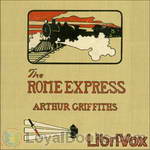 The Rome Express
The Rome Express
The passengers in the sleeping car of the Rome Express were just woken and informed that they will reach Paris soon, and a general bustle fills the train. Only one passenger cannot be awoken by the porter, no matter how loudly he knocks on the compartment door. At last, when the door is forced open, the occupant of the compartment is found dead - stabbed to the heart! The murderer must be found among the passengers... | |
 The Thin Red Line; and Blue Blood
The Thin Red Line; and Blue Blood
| |
By: Arthur Hornblow (1865-1942) | |
|---|---|
 The Third Degree A Narrative of Metropolitan Life
The Third Degree A Narrative of Metropolitan Life
| |
 The Mask A Story of Love and Adventure
The Mask A Story of Love and Adventure
| |
By: Arthur J. Rees (1872-1942) | |
|---|---|
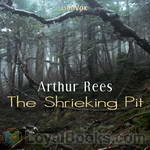 The Shrieking Pit
The Shrieking Pit
The Shrieking Pit is one of Arthur Rees's earlier works, and is a good old fashioned murder mystery story. Grant Colwyn, a private detective, is holidaying in East Anglia when he notices a young man at a nearby table behaving peculiarly. The young man later leaves the hotel without paying his bill, and turns up in a nearby hamlet in the Norfolk marshes where he takes lodgings at the village inn. The next day, another guest at the inn is found dead, and the young man is missing. Can Colwyn sort out the mystery and prove the young man's innocence one way or the the other? | |
By: Arthur Leo Zagat (1896-1949) | |
|---|---|
 The Great Dome on Mercury
The Great Dome on Mercury
| |
By: Arthur Lewis Tubbs (1867-1946) | |
|---|---|
 Alias Miss Sherlock
Alias Miss Sherlock
Dick Brewster is implicated in a murder and comes to his aunt's farm to hide. His Aunt Sarah stands by him in his need and they all move to the city in the effort to clear his name. She investigates on her own account and.... - Summary by The Author Cast list: Lily Ann, Help at the farm: Devorah Allen Aaron Flint, the hired man: Alan Mapstone Mrs. Brewster, from New York: TJ Burns Helen Brewster, her daughter: Jenn Broda Leonard Fillmore, a young country lawyer: skypigeon Sarah Newcomb, sister of Mrs... | |
By: Arthur M. Winfield (1862-1930) | |
|---|---|
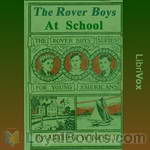 The Rover Boys at School
The Rover Boys at School
First of the famous Rover Boys books by future Hardy Boys creator Edward Stratemeyer (under the pseudonym Arthur M Winfield), this is an introduction to the fun-loving teenage Rover Brothers -- Dick, Tom & Sam. Virtual orphans, they are sent by their prudish Uncle Randolph to a military boarding school and their adventures soon begin! | |
 Rover Boys in the Jungle
Rover Boys in the Jungle
Third entry in the then-popular boys' adventure series has the Rover brothers (Tom, Dick, & Sam) heading to Africa to search for their long-missing father, after a few more adventures at their upstate New York boarding school, Putnam Hall. | |
 Rover Boys Out West
Rover Boys Out West
Despite the title, the Rover Brothers spend several chapters -- over half the book -- back East, against arch-nemeses Josiah Crabtree and the Baxter family. Formulaic fun was dated even by the 1940's when Orson Welles satirized it on the radio. | |
 Rover Boys on the Great Lakes
Rover Boys on the Great Lakes
The continuing saga of those rambunctious Rover Boys, brothers Dick, Tom, and Sam, takes them to the Great Lakes region of the northern U.S.. Expect the usual adventure and ultimately heroic encounters with bad apples, like arch-enemies the Baxter clan and simpering Josiah Crabtree. | |
By: Arthur Machen (1863-1947) | |
|---|---|
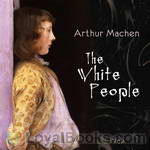 The White People
The White People
Literary critics see Arthur Machen’s works as a significant part of the late Victorian revival of the gothic novel and the decadent movement of the 1890s, bearing direct comparison to the themes found in contemporary works like Robert Louis Stevenson’s The Strange Case of Dr Jekyll and Mr Hyde, Bram Stoker’s Dracula, and Oscar Wilde’s The Picture of Dorian Gray. The White People is a highly influential horror story of a young girl’s discovery of ancient magic. It was written in the late 1890s as part of a longer unfinished novel, some sketches from which went into his book Ornaments in Jade. Fans of supernatural fiction often cite this story as a classic in the genre. | |
 The Great God Pan
The Great God Pan
"The Great God Pan" is a novella written by Arthur Machen. A version of the story was published in the magazine Whirlwind in 1890, and Machen revised and extended it for its book publication (together with another story, "The Inmost Light") in 1894. On publication it was widely denounced by the press as degenerate and horrific because of its decadent style and sexual content, although it has since garnered a reputation as a classic of horror. Machen’s story was only one of many at the time to focus on Pan as a useful symbol for the power of nature and paganism... | |
 The Angels of Mons
The Angels of Mons
The Angels of Mons is a popular legend about a group of angels who supposedly protected members of the British army in the Battle of Mons at the outset of World War I. The story is fictitious, developed through a combination of a patriotic short story by Arthur Machen, rumours, mass hysteria and urban legend, claimed visions after the battle and also possibly deliberately seeded propaganda. | |
 The House of Souls
The House of Souls
| |
 Red Hand
Red Hand
Two London gentlemen ponder the evolution of humankind as they investigate a modern-day murder committed with an ancient tool. - Summary by Wanda White | |
 Three Impostors
Three Impostors
Three friends in a large old dilapidated house are laughing. They seem as giddy as an acting troupe at closing night. But their laughter is callous, cruel; you might say, evil. One of them, a young woman described as piquant rather than beautiful with eyes of a shining hazel, carries a neatly wrapped parcel. She says it is for the doctor's museum. It is dripping. Do you want to know why? Then, listen! There's more than one tale told, but what is the truth? My dears, are you sure you want to know? | |
By: Arthur Mee (1875-1943) | |
|---|---|
 The World's Greatest Books — Volume 01 — Fiction
The World's Greatest Books — Volume 01 — Fiction
| |
By: Arthur Morrison (1863-1945) | |
|---|---|
 A Child of the Jago
A Child of the Jago
Arthur George Morrison (1 November 1863, Poplar, London - 4 December 1945, Chalfont St Peter, Buckinghamshire) was an English author and journalist known for his realistic novels about London's East End and for his detective stories. Morrison's most famous novel is A Child of the Jago, published in 1896, The novel described in graphic detail living conditions in the East End, including the permeation of violence into everyday life (it was a barely fictionalized account of life in the Old Nichol Street Rookery). (Introduction by Wikipedia and Algy Pug) | |
 The Red Triangle Being Some Further Chronicles of Martin Hewitt, Investigator
The Red Triangle Being Some Further Chronicles of Martin Hewitt, Investigator
| |
By: Arthur Preston Hankins (1880-1932) | |
|---|---|
 The She Boss A Western Story
The She Boss A Western Story
| |
By: Arthur Ransome (1884-1967) | |
|---|---|
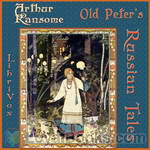 Old Peter's Russian Tales
Old Peter's Russian Tales
Arthur Ransome is best known for his ‘Swallows and Amazons’ series of children’s books. This is the only example of his fiction in the public domain. These stories are all from Russian folklore, some comparatively well-known, others less so. Ransome spent some years in Russia as a newspaper correspondent fir the ‘Daily News’ and the ‘Manchester Guardian’ and was peripherally involved in the revolution. In the late twenties he married Evgenia Shvelpina, Trotsky’s secretary, retired from newspapers and started writing his children’s books. | |
By: Arthur Schnitzler (1862-1931) | |
|---|---|
 Casanova's Homecoming
Casanova's Homecoming
| |
 The Dead Are Silent 1907
The Dead Are Silent 1907
| |
By: Arthur Scott Bailey (1877-1949) | |
|---|---|
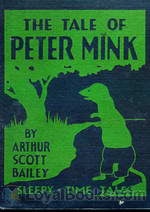 The Tale of Peter Mink
The Tale of Peter Mink
Arthur Scott Bailey (1877 – 1949) was author of more than forty children’s books. Bailey’s writing has been described thusly by the Newark Evening News: “Mr. Bailey centered all his plots in the animal, bird and insect worlds, weaving natural history into the stories in a way that won educator’s approval without arousing the suspicions of his young readers. He made it a habit to never ‘write down’ to children and frequently used words beyond the average juvenile vocabulary, believing that youngsters respond to the stimulus of the unfamiliar.” | |
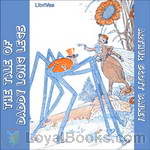 The Tale Of Daddy Long Legs
The Tale Of Daddy Long Legs
Summary text (Arthur Scott Bailey (1877 – 1949) was author of more than forty children’s books. He was born on November 15, 1877, in St. Albans, Vermont, United States, the second child of Winfield Scott Bailey and Harriet Sarah Goodhue. THERE was great excitement in the neighborhood of Farmer Green’s house. Rusty Wren had found some strange tracks. And nobody knew whose they were. Now, when they were puzzled like that the field- and forest-folk usually went straight to Mr. Crow for advice... | |
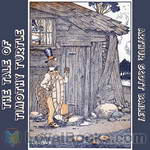 The Tale of Timothy Turtle
The Tale of Timothy Turtle
One of Bailey’s “Sleepy-Time Tales,” this is the story of Timothy Turtle, a grumpy old turtle trying to live his life alongside Black Creek. Timothy’s adventures lead him to encounters with other Black Creek creatures, Fatty Coon, Mr. Crow, Brownie Beaver, Peter Mink, Ferdinand Frog, and even the local boy, Johnnie Green. | |
 The Tale of Major Monkey
The Tale of Major Monkey
Arthur Scott Bailey was the author of more than forty children’s books.Mr. Bailey centered all his plots in the animal, bird and insect worlds, weaving natural history into the stories in a way that won educator’s approval without arousing the suspicions of his young readers. | |
 The Tale of Benny Badger
The Tale of Benny Badger
Mr. Bailey centered all his plots in the animal, bird and insect worlds, weaving natural history into the stories in a way that won educator’s approval without arousing the suspicions of his young readers. He made it a habit to never ‘write down’ to children and frequently used words beyond the average juvenile vocabulary, believing that youngsters respond to the stimulus of the unfamiliar.” | |
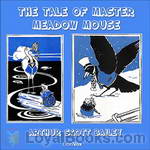 The Tale of Master Meadow Mouse
The Tale of Master Meadow Mouse
This volume in the series, Sleepy-Time Tales, follows the adventures of Master Meadow Mouse as he moves his home to various (safer) places, and tells how he cleverly avoids creatures such as Fatty Coon, Mr. Crow, and Mr. Great Blue Heron, just to name a few. | |
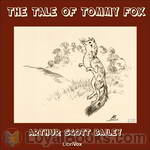 The Tale of Tommy Fox
The Tale of Tommy Fox
Bailey’s writing has been described thusly by the Newark Evening News: “Mr. Bailey centered all his plots in the animal, bird and insect worlds, weaving natural history into the stories in a way that won educator’s approval without arousing the suspicions of his young readers. He made it a habit to never ‘write down’ to children and frequently used words beyond the average juvenile vocabulary, believing that youngsters respond to the stimulus of the unfamiliar. (Wikipedia) | |
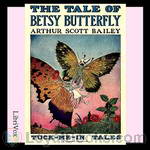 The Tale of Betsy Butterfly
The Tale of Betsy Butterfly
Arthur Scott Bailey (1877 – 1949) was the author of more than forty children’s books. “Mr. Bailey centered all his plots in the animal, bird and insect worlds, weaving natural history into the stories in a way that won educator’s approval without arousing the suspicions of his young readers. He made it a habit to never ‘write down’ to children and frequently used words beyond the average juvenile vocabulary, believing that youngsters respond to the stimulus of the unfamiliar.” (Wikipedia) | |
 The Tale of Grandfather Mole
The Tale of Grandfather Mole
Arthur Scott Bailey (1877 – 1949) was the author of more than forty children’s books.Bailey’s writing has been described thusly by the Newark Evening News: “Mr. Bailey centered all his plots in the animal, bird and insect worlds, weaving natural history into the stories in a way that won educator’s approval without arousing the suspicions of his young readers. He made it a habit to never ‘write down’ to children and frequently used words beyond the average juvenile vocabulary, believing that youngsters respond to the stimulus of the unfamiliar.” | |
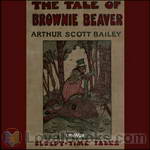 The Tale of Brownie Beaver
The Tale of Brownie Beaver
Arthur Scott Bailey was the author of more than forty children’s books, centered all his plots in the animal, bird and insect worlds, weaving natural history into the stories in a way that won educator’s approval without arousing the suspicions of his young readers. The Tale of Brownie Beaver is another adventure of the friends and neighbours of Pleasant Valley. You will hear how Brownie keeps a house safe from a Freshet and how he receives his weekly newspaper and not to forget the making of a new suit. | |
 Tale of Miss Kitty Cat
Tale of Miss Kitty Cat
The rats and the mice thought that Miss Kitty Cat was a terrible person. She was altogether too fond of hunting them. They agreed, however, that in one way it was pleasant to have her about the farmhouse. When she washed her face, while sitting on the doorsteps, they knew—so they said!—that it was going to rain. And then Mrs. Rat never would let her husband leave home without taking his umbrella. As a rule Miss Kitty Cat didn't look at all frightful. Almost always she appeared quite unruffled, going about her business in a quiet way and making no fuss over anything... | |
 Tale of Dickie Deer Mouse
Tale of Dickie Deer Mouse
"All the four-footed folk in the neighborhood agreed that Dickie Deer Mouse was well worth knowing. Throughout Pleasant Valley there was no one else so gentle as he . . . He was always tastefully dressed in fawn color and white. And except sometimes in the spring, when he needed a new coat, he was a real joy to see. For he both looked and acted like a well-bred little person."In one of Bailey's "Sleepy-Time Tales", we follow a polite little mouse called Dickie as he hunts for a summer home, finds food, and avoids various predators... | |
 Tale of Buster Bumblebee
Tale of Buster Bumblebee
Buster Bumblebee and his family move into a new home. Excitement and buzzing abound. Buster meet a strange fellow called a carpenter bee, way too many chirpy crickets, and even finds his own long lost sister. Later in his adventurous life, Buster learns of another kind of Bee, a Raising Bee and how much food is available for everyone there. All in all, this tale will bring smiles and grins to listeners young and old as it tells of Buster Bumblebee, a young bee with a lot to learn but a heart of gold. | |
 Tale of Mrs. LadyBug
Tale of Mrs. LadyBug
Have you ever seen a LadyBug and wondered what the cute little bug with the dots on her back was thinking? And why she seemed in such a rush? Well here is your chance to peek into her thoughts and enjoy some of her daily triumphs and disasters. "Little Mrs. Ladybug was a worker. Nobody could deny that. To be sure, she had to stop now and then to talk to her neighbors, because Mrs. Ladybug dearly loved a bit of gossip. At the same time there wasn't anyone in Pleasant Valley that helped Farmer Green more than she did... | |
 Tale of Henrietta Hen
Tale of Henrietta Hen
The Tale of Henrietta Hen is a cute children's book filled with the adventures of a hen named Henrietta. | |
 Tale of Pony Twinkleheels
Tale of Pony Twinkleheels
"When Johnnie Green sent him along the road at a trot, Twinkleheels' tiny feet moved so fast that you could scarcely have told one from another. Being a pony, and only half as big as a horse, he had to move his legs twice as quickly as a horse did in order to travel at a horse's speed. Twinkleheels' friends knew that he didn't care to be beaten by any horse, no matter how long-legged. "It's spirit, not size, that counts," Farmer Green often remarked as he watched Twinkleheels tripping out of the yard, sometimes with Johnnie on his back, sometimes drawing Johnnie in a little, red-wheeled buggy... | |
By: Arthur Stanwood Pier (1874-1966) | |
|---|---|
 The Jester of St. Timothy's
The Jester of St. Timothy's
| |
By: Arthur Stringer (1874-1950) | |
|---|---|
 The Man Who Couldn't Sleep
The Man Who Couldn't Sleep
| |
 The Prairie Child
The Prairie Child
| |
 The Prairie Mother
The Prairie Mother
| |
 Phantom Wires A Novel
Phantom Wires A Novel
| |
 Shadow
Shadow
A manhunt for a bank robber takes a determined and fixated New York City detective on a gripping, globe-spanning adventure, with many plot twists along the way. Arthur Stringer was a novelist, screenwriter and poet. He published 45 works of fiction and 15 other books in addition to writing numerous film scripts and articles. See: https://en.wikipedia.org/wiki/Arthur_Stringer_(writer) This book is unrelated to the 1930s and 1940s pulp magazine and radio series of the same name. (Lee Smalley) | |
By: Arthur Thomas Quiller-Couch (1863-1944) | |
|---|---|
 The Blue Pavilions
The Blue Pavilions
| |
 Dead Man's Rock
Dead Man's Rock
| |
 The Adventures of Harry Revel
The Adventures of Harry Revel
| |
 Foe-Farrell
Foe-Farrell
| |
 The Delectable Duchy
The Delectable Duchy
| |
 News from the Duchy
News from the Duchy
| |
 Wandering Heath
Wandering Heath
| |
 True Tilda
True Tilda
| |
 The Mayor of Troy
The Mayor of Troy
| |
 Major Vigoureux
Major Vigoureux
| |
 Brother Copas
Brother Copas
| |
 Hetty Wesley
Hetty Wesley
| |
 Shining Ferry
Shining Ferry
| |
By: Asa Don Dickinson (1876-1960) | |
|---|---|
 The Children's Book of Christmas Stories
The Children's Book of Christmas Stories
Many librarians have felt the need and expressed the desire for a select collection of children's Christmas stories in one volume. This book claims to be just that and nothing more. Each of the stories has already won the approval of thousands of children, and each is fraught with the true Christmas spirit. It is hoped that the collection will prove equally acceptable to parents, teachers, and librarians. | |
 Good Cheer Stories Every Child Should Know
Good Cheer Stories Every Child Should Know
This charming book has many stories that deal mostly with the holiday of Thanksgiving, perfectly suited for family listening and reading. and gathers in one volume tales of tasty turkeys, festive parties, generous gestures, and holiday cheer. The stories featured include works by such writers as Harriet Beecher Stowe, George Eliot, Nathaniel Hawthorne, and others. So if you want to listen to some great stories that bring out gratitude for life and a thanksgiving attitude, here are a bunch of the best. | |
By: August Strindberg (1849-1912) | |
|---|---|
 The Red Room
The Red Room
A young idealistic civil servant, Arvid Falk, leaves the drudgery of bureaucracy to become a journalist and author. As he explores various social activities — politics, publishing, theatre, philanthropy, and business — he finds more hypocrisy and corruption than he thought possible. He takes refuge with a group of "bohemians", who meet in a red dining room in Berns Salonger to discuss these matters. (Introduction adopted from Wikipedia) | |
By: Augusta Groner (1850-1929) | |
|---|---|
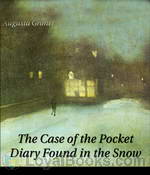 The Case of the Pocket Diary Found in the Snow
The Case of the Pocket Diary Found in the Snow
The account of some adventures in the professional experience of a member of the Imperial Austrian Police. (from the text) | |
 Case Of The Registered Letter
Case Of The Registered Letter
A man is found shot dead and the man to whom all evidence points insists he is innocent. | |
By: Augusta Huiell Seaman (1879-1950) | |
|---|---|
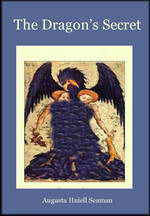 The Dragon's Secret
The Dragon's Secret
Sixteen year old Leslie Crane has come to the New Jersey shore as a companion to ailing Aunt Marcia, whose doctor has sent her there for a some quiet rest and recuperation. While the beach is lovely in October, Leslie quickly finds herself getting lonely with no one her own age to talk to. Little does she realize that she will not only soon make a new friend, but that they will both end up in the midst of a puzzling mystery centered around the closed up bungalow next door. Augusta Huiell Seaman is the author of over 40 historical fiction and mystery novels for older children most of which are currently out of print. The Dragon’s Secret was originally published in 1921. | |
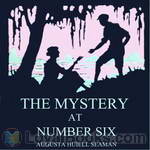 The Mystery at Number Six
The Mystery at Number Six
A mysterious girl, a mysterious pool, and a mysterious businessman combine to send two Florida teens to adventureland in this pre-Nancy Drew tale for young people | |
 The Slipper Point Mystery
The Slipper Point Mystery
When fourteen year old Sally Carter decides to share the secret she has discovered on Slipper Point with her new friend Doris Craig, she couldn’t possibly imagine where the solution to this intriguing mystery will lead them! Augusta Huiell Seaman is the author of over 40 historical fiction and mystery novels for older children most of which are currently out of print. The Slipper Point Mystery was originally published in 1919. | |
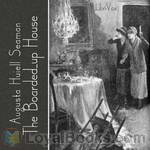 The Boarded Up House
The Boarded Up House
What is the secret of the old boarded up house? And what is the answer to the mystery of the long lost letter that is found in it? Best friends Joyce and Cynthia - along with their dog "Goliath", are determined to find out in this pre-Nancy Drew juvenile mystery for girls.Augusta Huiell Seaman was the author of over 40 historical fiction and mystery novels for older children. | |
 Girl Next Door
Girl Next Door
Marcia Brett has noticed unusual activity at the ramshackle and seemingly abandoned mansion next door: a mysterious, veiled lady is seen coming and going out the front door, a different woman is glimpsed through a shuttered window, and most mysterious of all, a pretty, blond girl is seen briefly looking forlornly out an upper window! Along with her best friend, Janet McNeil, the two girls are determined to learn the secrets of the old house and befriend the young girl, but once they do, the secrets only increase. The girl has no idea why she is at this house or even who the women she is living with are! Has she been kidnapped? Are they relatives? No one seems to know. | |
By: Augusta J. Evans (1835-1909) | |
|---|---|
 Beulah
Beulah
| |
 Inez A Tale of the Alamo
Inez A Tale of the Alamo
| |
 Infelice
Infelice
| |
By: Auguste Groner (1850-1929) | |
|---|---|
 Lady in Blue
Lady in Blue
A Joseph Muller Mystery originally published in 1905 in German as "Die blaue Dame" . Translated by American writer and translator, Grace Isabel Colbron in 1922 as The Lady in Blue. A mysterious old house, an unexplained scream in the night, the death of a beautiful young girl. Was it suicide? Or something more sinister at work? - Summary by J.M.Smallheer | |
 Man with the Black Cord
Man with the Black Cord
A baffling disappearance. A bedroom door locked from the inside. A housekeeper with something to hide. Will retired policeman turned private detective, Joseph Muller, be able to sort out the clues and solve this locked room mystery? Summary by J. M. Smallheer | |
By: Augustus Allen Hayes (1837-1892) | |
|---|---|
 The Denver Express From "Belgravia" for January, 1884
The Denver Express From "Belgravia" for January, 1884
| |